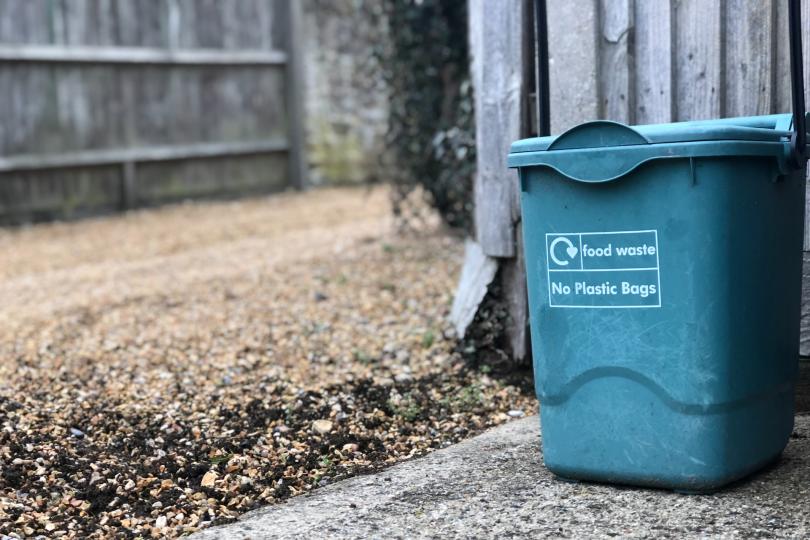Niles’ team finds Vermont’s food waste laws are popular, but vexing issues remain
Editor’s note: This story is excerpted from content originally published by University of Vermont Gund Institute for the Environment.
Meredith Niles’ research team at the University of Vermont conducted the first research to study the state's pioneering food waste and single-use plastic laws. Effective July 1, 2020, “Vermont was the first state in the country to legally require residents and businesses to divert food scraps from their trash,” said lead researcher Emily Belarmino. “These new findings will help policymakers here, and in other states, looking to learn from our experience.”
Their two studies found that Vermonters largely support laws on food scraps and single-use plastics, but some are confused about composting rules, and frustrated with the state’s inability to compost biodegradable containers and tableware.
Key findings on the food waste law’s impacts:
-
Most Vermonters (85%) are composting, and 61% report feeling a “moral obligation” to keep food scraps out of landfills.
-
Residential food scrap separation increased 48% with backyard composting as the leading method.
-
Over a quarter of Vermonters (26%) are confused about the rules of the food waste ban, and one-fifth of households that compost (20%) characterize it as hard or very hard.
-
Businesses’ support is high, but restaurants report more negative impacts on costs and revenues than food retailers.
-
Ongoing challenges: access to composting facilities in apartments and condos, winter composting, and general composting education.
Key findings on Vermont’s single-use plastics law’s impacts:
-
Vermonters now bring home 6 fewer plastic bags per week on average.
-
Businesses say charging for paper bags is the law’s most challenging requirement.
-
Businesses identify Vermont’s inability to compost or recycle biodegradable takeout meal containers and tableware as a source of frustration.
-
Most Vermonters (66%) say the environmental benefits of the plastic bag ban outweigh the economics costs.
-
Restaurants and other food service businesses reported more negative impacts than food retailers.
Learn more in the full story by the University of Vermont Gund Institute for the Environment, and in the two reports: —Impact of Vermont’s Food Scraps Ban (Act 148): Evidence from Consumers and Food Businesses and Impact of Single Use Plastic Products Legislation (Act 69) on Consumers and Food Businesses: Evidence from Vermont.
The research team included Emily Belarmino, Claire Ryan, Qingbin Wang, Meredith Niles and Margaret Torness.


